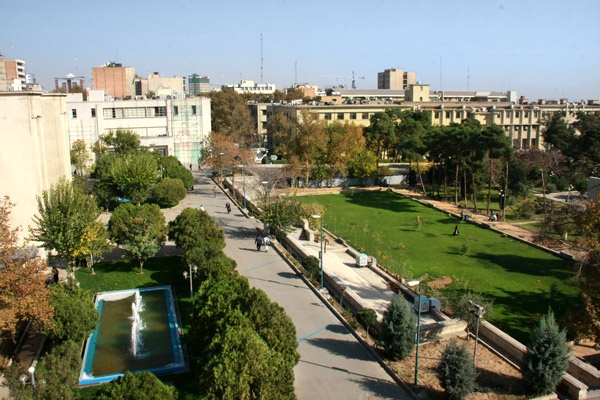Ramadan Fever Among TUMS Students

This month is the biggest religious event in Islam for many reasons, one of them being when the Qur’an was first revealed to the Holy Prophet Mohammed (peace be upon him). During this period, Muslims go about life as usual except the fact that they do not eat or drink anything between sunrise and sunset. This period of fasting lasts for 30 days.
During Ramadan, coupled with the hot summer weather in Iran, most people prefer to stay indoors with their families and friends or read Qur’an and pray. Here at TUMS, even though most departments, if not all, are on holidays due to summer break, you could still see on campus a few activities going on before the start of Ramadan. Today, I had a walk to campus to have a look around and see what was going on during this month. It has been a while since I went there due to summer holidays. My observations were not far from my expectations: The campus was almost empty and I could walk far distances before meeting a person or a group of people. The dining hall, which everyday provides food for students and during the day was closed with a big padlock, signifying the forbiddingness of eating during the day during this Holy month. The cafeterias which provide snacks and other sweets were also closed. The atmosphere was overwhelming and I could feel the dedication of Muslims to the Almighty Allah during this month.
Back at the dormitory, I joined other Muslim students to find out about their experiences during this month of fasting. Celebrating Ramadan in a different country and away from our families can be very difficult, and it can be particularly challenging if you are trying to adapt to a different environment during your studies. In Iran, fasting hours can last up to 18 hours, making this practice longer than it would be in other countries such as those of Africa. I asked one student, Mohammed Zayyad Wanka, BS.c. student of Anesthesia Technique, from Nigeria to share with us his experience during this month of Ramadan, and this is what he said:
“Ramadan in Iran is very difficult for me because the fasting hours here is longer than that of Nigeria but I am trying to adapt. In Nigeria, it takes about 13 hours or a maximum of 14 hours to complete the fast. For example Azaan Sobh (Morning Prayer Call) in Nigeria is around 5:00 a.m. but in Iran, it is around 4:00 a.m., and Azaan Maghreb (Evening Prayer Call) is around 6:00 p.m. in Nigeria whilst it is around 8:00 p.m. here. The weather is also very hot here, making things difficult but Insha’Allah, the fast is going on well. I am also missing home because I never worried about cooking for Iftar (the time of breaking the fast) as it was always done by my family. In general, this is our Holy month and, no matter the conditions, I will fast because it is among the most enjoyable moments in my life.”
Whilst physical activities might have slowed down, there are some departments’ staff that are still active. These include hospital workers such as doctors. An interview with Dr. Kamaran Omar Issa, a fellowship student in Cancer Surgery from Iraq, shows their dedication to work and Allah. This is what he said:
“In the operation room during operations, I have to stand for long hours which, under normal circumstances, is supposed to be difficult but I am always strengthened during this time. Ramadan, to me, is very very important and I fast because it shows dedication to Allah. I believe the Almighty Allah strengthens me during this period.”
A few students have also gone back to their countries to celebrate this month with their families. To sum up, the atmosphere here is awesome, and we are enjoying this Holy month in happiness and praying to the Almighty Allah to bless us, give us knowledge and to make our societies better places to live in.
Ramadan Kareem to all!

Your Comment :